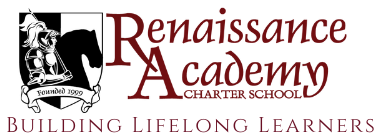What is a charter school?
Charter schools are independent public schools, designed by educators, parents, community leaders, educational entrepreneurs, and others who are interested in providing a quality education to children in their community. Charters operate outside the educational bureaucracy that too often stifles innovation in traditional public schools. They are not private schools - as public schools, charters do not charge tuition and they may not "pick and choose" their students. However, charters do have similar attributes to private schools such as the autonomy and accountability that have allowed most private institutions to provide an excellent education to their customers.
Charter schools and cyber charter schools are unique and innovative initiatives that are changing and improving the educational landscape in Pennsylvania and across America. Charter schools are independent public schools custom-designed by local citizens -- including parents, teachers, and community leaders -- to fulfill a specific, often unique, and always locally driven educational mission. A charter school, as defined by Act 22 of 1997, is an autonomous Local Education Agency (LEA). Act 88 of 2002 addresses issues related to cyber charter schools. Charter schools are designed to operate free of most state mandates, except those ensuring the health, safety, and civil rights of our children.
This site provides information using PDF, visit this link to download the Adobe Acrobat Reader DC software.

